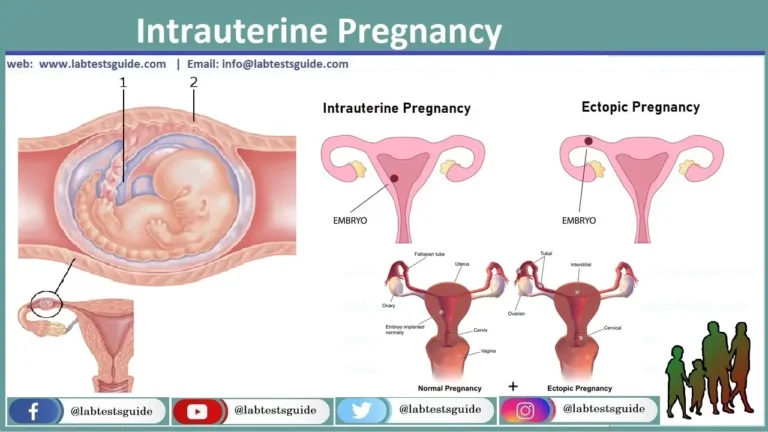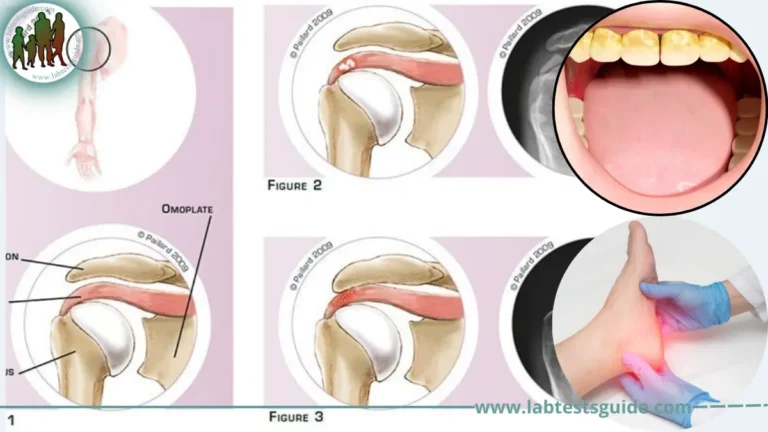Constipation is a common issue during pregnancy and can be caused by hormonal changes, increased pressure on the rectum and intestines due to the growing uterus, and prenatal vitamins that contain iron.
Learn about the causes, management, and relief strategies for constipation in pregnancy. Discover how hormonal changes, dietary adjustments, and lifestyle modifications can help ease discomfort during this transformative journey.

- Common Issue: Constipation is a common problem during pregnancy due to hormonal changes and the pressure of the growing uterus on the intestines.
- Hormonal Changes: Elevated levels of the hormone progesterone can lead to slower intestinal movement, causing constipation.
- Iron Supplements: Prenatal vitamins containing iron can contribute to constipation. Discuss alternative supplements with your healthcare provider if needed.
- Fiber-Rich Diet: Increasing your fiber intake through fruits, vegetables, whole grains, and legumes can help soften stools and promote regular bowel movements.
- Hydration: Drinking plenty of water is essential to prevent dehydration and maintain soft stools.
- Exercise: Regular physical activity, even light exercises like walking, can help prevent and alleviate constipation.
- Positioning: Using a stool or step stool to elevate your feet while on the toilet can help create a more natural position for bowel movements.
- Probiotics: Some women find relief from constipation by taking probiotics, which can promote healthy gut bacteria.
- Avoid Certain Foods: Limit or avoid processed foods, fried foods, and dairy products (if lactose intolerant) as they can worsen constipation.
- Consult Your Healthcare Provider: If constipation persists or becomes severe, consult your healthcare provider. They can recommend safe remedies or medications if necessary.
- Stool Softeners and Laxatives: Use these only under the guidance of your healthcare provider, as some are safe for pregnancy, while others are not.
- Stress Management: High levels of stress can contribute to constipation, so consider relaxation techniques like prenatal yoga or meditation.
- Communication: Keep open communication with your healthcare provider about changes in your bowel habits, as they can rule out any underlying issues.
- Safety First: Always prioritize the safety of both you and your baby when considering treatments or dietary changes during pregnancy.
Introduction to Constipation in Pregnancy:
Pregnancy is a beautiful and transformative experience in a woman’s life, but it can also come with its fair share of challenges. Constipation is one such common challenge that many expectant mothers face. While it may not be a topic often discussed openly, it’s a reality for a significant number of pregnant women. In this introductory guide, we will explore what constipation in pregnancy is, why it happens, and how to effectively manage and alleviate this discomfort to ensure a more comfortable journey through pregnancy. Whether you’re a soon-to-be mom or a supportive partner, understanding and addressing constipation during pregnancy is essential for the well-being of both mother and baby.
What is Constipation ?
Constipation is a common digestive issue that affects people of all ages, including pregnant women. It’s a condition characterized by infrequent bowel movements, difficulty passing stools, and hardened feces. While constipation itself is not typically a severe medical concern, it can be quite uncomfortable and even painful during pregnancy.
Causes of Constipation in Pregnancy:
- Hormonal Changes: Elevated progesterone levels during pregnancy can relax smooth muscles, including those in the intestines, slowing down the digestive process and leading to constipation.
- Uterine Enlargement: As the uterus grows, it can exert pressure on the rectum and intestines, hindering the normal flow of stool and causing constipation.
- Iron Supplements: Prenatal vitamins often contain iron, which can contribute to constipation by making stools harder and drier.
- Dietary Factors: A low-fiber diet, common during pregnancy, can lead to constipation. Foods rich in fiber, such as fruits, vegetables, whole grains, and legumes, promote regular bowel movements.
- Dehydration: Pregnancy increases the body’s need for fluids, and inadequate water intake can result in dehydration, which can worsen constipation by leading to dry stools.
Prevalence and Symptoms:
Prevalence of Constipation in Pregnancy
Constipation is a frequently encountered problem during pregnancy, with its prevalence varying across different stages of gestation. While exact figures may vary depending on the population studied, it’s estimated that:
- First Trimester: Approximately 11% to 39% of pregnant women experience constipation during the early stages of pregnancy, primarily due to hormonal changes.
- Second Trimester: The prevalence tends to decrease slightly during the second trimester, ranging from 7% to 34%.
- Third Trimester: Constipation may become more pronounced as the pregnancy progresses, affecting around 15% to 39% of women in the third trimester due to the growing uterus exerting pressure on the intestines.
These prevalence rates demonstrate that constipation is a common concern among pregnant women and underscores the importance of understanding and managing its symptoms.
Symptoms of Constipation in Pregnancy
Constipation in pregnancy shares many common symptoms with constipation in non-pregnant individuals. The hallmark signs and symptoms include:
- Infrequent Bowel Movements: One of the primary indicators of constipation is having fewer bowel movements than usual. For some pregnant women, this might mean going several days without a bowel movement.
- Hard Stools: Stools in constipation tend to be dry, hard, and difficult to pass. The consistency of the stool can be a source of discomfort and pain.
- Straining: To expel hardened stools, pregnant women with constipation often experience the need to strain during bowel movements. This straining can lead to additional discomfort and may even result in complications like hemorrhoids or anal fissures.
- Incomplete Emptying: Even after a bowel movement, there may be a sensation of incomplete emptying, as the hard stools can leave remnants in the rectum.
- Abdominal Discomfort: Constipation can cause abdominal pain and discomfort, which may range from mild to severe, depending on the severity of the condition.
- Bloating: Pregnant women experiencing constipation often report feeling bloated and gassy. This bloating can contribute to overall discomfort.
- Rectal Discomfort: Some individuals with constipation may experience discomfort or pain in the rectal area, particularly if they develop hemorrhoids or anal fissures due to straining.
- Hemorrhoids: Straining during bowel movements can lead to the development or worsening of hemorrhoids, which can cause pain, itching, and bleeding.
- Anal Fissures: Constipation can result in anal fissures, which are small tears in the lining of the anus, causing pain and bleeding during bowel movements.
- Psychological Stress: The discomfort and frustration associated with constipation can lead to psychological stress and anxiety, which are generally undesirable during pregnancy.
Risks and Complications of Constipation in Pregnancy:
- Hemorrhoids: Constipation can lead to the development or worsening of hemorrhoids, swollen and inflamed blood vessels in the rectal area, causing pain, itching, and bleeding.
- Anal Fissures: Straining during constipation can result in anal fissures, small tears in the lining of the anus, leading to pain and bleeding during bowel movements.
- Fecal Impaction: Severe or untreated constipation can result in fecal impaction, where a large, hardened stool becomes stuck in the rectum, causing extreme discomfort and requiring medical intervention for removal.
- Psychological Stress: The discomfort and frustration associated with constipation can lead to psychological stress during pregnancy, which can have adverse effects on both the mother and the developing fetus.
- Discomfort and Reduced Quality of Life: Persistent constipation can cause ongoing discomfort and a reduced quality of life for pregnant women, affecting their overall well-being.
- Impact on Fetal Development: While constipation itself is unlikely to directly harm the developing fetus, persistent and severe constipation can lead to maternal discomfort and stress, potentially impacting the overall well-being of both the mother and the baby.
- Complications from Straining: Straining during constipation can lead to complications such as urinary tract infections (UTIs) and even preterm contractions in some cases.
Tips and Strategies for Managing and Preventions:
- High-Fiber Diet: Consume a diet rich in fiber from fruits, vegetables, whole grains, and legumes to promote regular bowel movements.
- Stay Hydrated: Drink plenty of water throughout the day to maintain soft stools and prevent dehydration-related constipation.
- Regular Exercise: Engage in regular, safe physical activity like walking or prenatal yoga to stimulate intestinal motility.
- Prunes and Prune Juice: Incorporate prunes or prune juice into your diet, as they are natural laxatives that can help soften stools.
- Limit Trigger Foods: Reduce or avoid processed foods, fried foods, and dairy (if lactose intolerant), which can exacerbate constipation.
- Positioning: Use a stool or step stool to elevate your feet when having a bowel movement to create a more natural position.
- Discuss Iron Supplements: Talk to your healthcare provider about iron supplements in prenatal vitamins; they may recommend alternatives or adjusted dosages.
- Probiotics: Consider probiotics after consulting your healthcare provider to promote a healthy gut.
- Stress Management: Practice relaxation techniques like deep breathing, meditation, or prenatal yoga to reduce stress, which can contribute to constipation.
- Over-the-Counter Remedies: Only use over-the-counter remedies under your healthcare provider’s guidance if dietary and lifestyle changes are ineffective.
- Regular Communication: Keep your healthcare provider informed of any persistent or severe constipation to rule out underlying issues.
- Avoid Medication Misuse: Be cautious with laxatives and stool softeners; use them only under the guidance of your healthcare provider.
Medication and Consultation:
- Stool Softeners (e.g., docusate sodium): These medications help soften dry and hard stools, making them easier to pass. Consult your healthcare provider before using, but they are generally considered safe during pregnancy when used as directed.
- Bulk-Forming Laxatives (e.g., psyllium): They add bulk to stools, promoting regular bowel movements. Generally safe for pregnancy and can be considered after consultation with a healthcare provider.
- Osmotic Laxatives (e.g., polyethylene glycol): These draw water into the intestines to soften stools. They are usually safe for short-term use during pregnancy under medical supervision.
- Lubricants (e.g., mineral oil): Lubricating laxatives facilitate the passage of stool but should be used with caution and under medical guidance.
- Prescription Medications: In rare cases of severe constipation unresponsive to other treatments, healthcare providers may prescribe prescription medications. These should be used strictly as directed and with full knowledge of potential risks.
- Consultation: Seek consultation with your healthcare provider if constipation persists, symptoms worsen, or you experience severe abdominal pain, vomiting, fever, or rectal bleeding. Consultation is also essential when considering any medications during pregnancy to ensure safety for both you and your baby.
Always prioritize the guidance of a healthcare professional when it comes to managing constipation during pregnancy, especially when considering medication use.
FAQs:
Q1: What causes constipation during pregnancy?
- A: Constipation during pregnancy can be caused by hormonal changes, uterine enlargement, iron supplements, a low-fiber diet, dehydration, and other factors.
Q2: How can I prevent constipation during pregnancy?
- A: You can prevent constipation by consuming a high-fiber diet, staying hydrated, exercising regularly, avoiding trigger foods, and managing stress.
Q3: Are there safe medications for constipation during pregnancy?
- A: Stool softeners and some laxatives may be safe when used under the guidance of a healthcare provider. Always consult your healthcare provider before taking any medication during pregnancy.
Q4: When should I consult a healthcare provider for constipation during pregnancy?
- A: You should consult your healthcare provider if constipation persists, becomes severe, or is accompanied by symptoms like abdominal pain, vomiting, fever, or rectal bleeding.
Q5: Can constipation harm my baby during pregnancy?
- A: While constipation itself is unlikely to directly harm your baby, severe and untreated constipation can lead to maternal discomfort and stress, potentially impacting overall well-being.
Q6: Is it normal to have constipation in the first trimester of pregnancy?
- A: Yes, constipation in the first trimester is common due to hormonal changes. It often improves as pregnancy progresses.
Q7: Can I use natural remedies like prunes or prune juice for constipation during pregnancy?
- A: Yes, natural remedies like prunes or prune juice can be effective in relieving constipation during pregnancy. However, consult your healthcare provider before trying any remedies or supplements.
Conclusion:
In conclusion, constipation is a common issue that many pregnant women experience at some point during their pregnancy journey. It can be uncomfortable and sometimes even painful, but with the right strategies and guidance, it can be managed effectively. Here are the key takeaways:
- Constipation during pregnancy is primarily caused by hormonal changes, uterine enlargement, iron supplements, dietary factors, and dehydration.
- Prevalence rates vary across pregnancy trimesters, with the condition often improving as pregnancy progresses.
- Common symptoms of constipation during pregnancy include infrequent bowel movements, hard stools, straining, and abdominal discomfort.
- It’s crucial to manage constipation to prevent potential complications such as hemorrhoids, anal fissures, and fecal impaction.
- Strategies for managing and preventing constipation include maintaining a high-fiber diet, staying hydrated, engaging in regular exercise, and practicing stress reduction techniques.
- Consultation with a healthcare provider is essential if constipation persists, becomes severe, or is accompanied by concerning symptoms. Medications, including stool softeners and laxatives, may be recommended under medical supervision.
- Always prioritize open communication with your healthcare provider to ensure safe and effective constipation management during pregnancy.
Possible References Used





